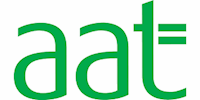Sage Accounts - Level 1 & Level 2-online with Tutor support
Online Training and classroom| Study materials and Tutor support | Exam included
Pitman Training Wembley
Summary
Price includes VAT for individual Learners not for Corporate clients.
- Exam(s) / assessment(s) is included in price
- Tutor is available to students
Location & dates
Lancelot Road
WEMBLEY
Middlesex
HA02AL
United Kingdom
Overview
This Sage 50 Accounts course will help you learn how to process a business’
finances using this globally renowned accounting software. This is essential,
interactive training using the very latest version of Sage Accounts, designed for those who already have an understanding of manual bookkeeping processes.
Qualification
AAT Foundation Certificate in Accounting - Level 2
CPD
Description
There are 13 modules within this course and below you can read a
a full breakdown of what is involved in each: -
- Module 1 – Navigating the software, setting up company details,
setting up the financial year, setting the program date, entering
customer details and opening balances, entering supplier details
and opening balances, backing up work, security, and protection
of data. - Module 2 – Restoring data, ledgers, and double-entries in Sage,
opening assets, liabilities and capital balances, budgets, opening
balances in the nominal ledger, routine reports. - Module 3 – Stock adjustments in, supplier invoices for goods and
services, batch supplier invoices, error corrections, amending
records. - Module 4 – Create customer invoices, preview and print customer
invoices, check on activity in customer accounts, update ledgers,
generate customer letters, check communication history, enter new
product details. - Module 5 – Enter customer receipts for invoiced items, enter
customer receipts for non-invoiced items, enter customer receipts
for part-payments, check activity of account after part payment,
produce statements for customers, use the diary feature. - Module 6 – Process payments made against supplier invoices,
process bank payments, enter petty cash payments, restore the
petty cash float, use the journal to correct errors, the structure of
nominal accounts, new nominal accounts, trial balance. - Module 7 – Reconcile monthly bank statements, print and view bank
reports and day books, reports criteria, audit trail, correct basic
entry errors, reconciling debtors and creditors control accounts. - Module 8 – Deleting obsolete records, memorise and recall features
for invoices, prompt payment discounts, credit notes for sales and
purchases, processing stock returns. - Module 9 – Payments on account, entering prompt payment
discounts, entering bank receipts, memorise and recall with bank
receipts, recurring entries, update journals for December. - Module 10 – Adding users with restricted access, create a new
product package, create a bill of materials, perform a stocktake,
produce special price lists, create a delivery address. - Module 11 – Deleting a price list, sales orders, updating the ledgers,
adding a carriage charge, allocating stock, place holds on orders,
cancel orders. - Module 12 – Purchase orders, marking purchase orders as
“delivered”, updating the ledger, purchase order alternate address
(drop-shipping), part-delivery of an order, cancelling orders.
Module 13 – VAT returns, trial balance, management accounts,
budgets vs. actuals, year-end procedure, AAT certification
information.
Who is this course for?
This is a must-do course for anyone wanting to enhance their career
working in accounts in roles such as Accounts Assistant, Finance
Assistant, Bookkeeper etc. It would also benefit business owners
who manage their own financial records.
Getting to grips with the latest version of Sage will help you impress
potential employers and with the format of the training, you’ll have
skills that are immediately applicable to the workplace.
Requirements
Prior experience and understanding of manual accounting
procedures would be necessary.
Career path
Want to work in accounts? Pretty much every business needs
knowledgeable people to help process the daily financial transactions
and ensure everything is logged and recorded accurately. This
certification can help you gain roles such as Accounts Assistant,
Finance Assistant, Sales Ledger Clerk, Bookkeeper etc.
Questions and answers
Reviews
Legal information
This course is advertised on reed.co.uk by the Course Provider, whose terms and conditions apply. Purchases are made directly from the Course Provider, and as such, content and materials are supplied by the Course Provider directly. Reed is acting as agent and not reseller in relation to this course. Reed's only responsibility is to facilitate your payment for the course. It is your responsibility to review and agree to the Course Provider's terms and conditions and satisfy yourself as to the suitability of the course you intend to purchase. Reed will not have any responsibility for the content of the course and/or associated materials.


